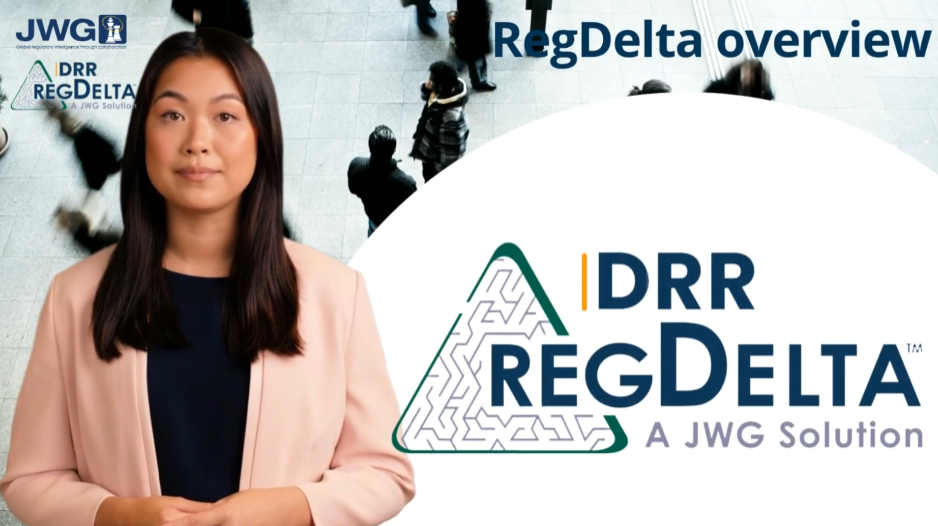On the 5th of December the Bank of England and FCA held a Transforming Data Collection town hall which revealed the Bank is turning to industry standards to address 455 million errors per day.
That’s a lot of thankless standards work which could change the game. We know this from hard experience. JWG has been at the forefront of UK regulatory reporting discussion for over a decade and as members of ISO and FINOS we applaud the effort. However, without a funded plan of action, it risks becoming just another RegTalking point.
The UK has now fallen behind US and EU efforts to address the holistic set of issues explored in the FCA TechSprints of 2018 – namely rewriting the reporting regimes, introducing a data dictionary and introducing machine readable and executable reporting.
What’s missing? Clear targets, action plans, concrete deadlines, and committed budgets to transform ideas into reality.
If we want to lead, we must move from discussion to decisive execution. Now is the time to give this committee the support it needs to succeed.
The Rise of Industry-Led Data Standards
The Industry Data Standards Committee (IDSC) was formally established in May 2024, bringing together 20 members with deep expertise across the financial sector. With permanent representation from the Financial Conduct Authority (FCA), the Bank of England, and other key stakeholders, the committee seeks to tackle the pressing issues plaguing regulatory reporting.
Their mission? To improve data quality, lower compliance costs, and reduce the risks inherent in regulatory reporting. The IDSC is actively working to:
- Recommend and implement data standards for returns.
- Create new standards where gaps exist.
- Harmonize data practices across UK regulators and align with global frameworks.
Why Data Standards Are Critical
At an estimated 5% error rate, the 9.1 billion data points received daily by the Bank, there are 455 million errors per day or 100 billion errors on an annualised basis, cloud the visibility to the financial sector.
Inconsistent and inefficient data processes are costly. A recent industry survey estimated regulatory reporting costs at £1.5–2 billion annually.
This figure likely underestimates the true financial burden, especially during periods of market volatility. Beyond cost, poor data quality introduces risks, reduces transparency, and hampers decision-making.
By standardizing data, the IDSC aims to:
- Clarify regulatory data requests to reduce misinterpretation.
- Enhance data reuse within firms and across regulatory entities.
- Simplify and unify processes to decrease complexity and errors.
These standards are welcomed by industry participants. As discussed in JWG’s article ‘Banks harness opensource innovation to transform regulatory reporting’ here, leading financial institutions such as BNP, JP Morgan, BMO and RBC are creating a future where regulatory compliance is not only cost-effective but also transparent, scalable, and interoperable.
The UK gap to the EU and US data approach
In June 2012, JWG published Dirty Windows: regulating a clearer view – The €24 billion case for EU transparency? This was one of the first research efforts to bring together the impact of post crisis data demands and we were pleased to assist a new FCA RegTech team understand the scope of the reporting challenge from 2015 to 2018.
As JWG has subsequently reported in its June 2023 analysis ‘ESMA’s new Data Strategy’ here ESMA’s 5 year data strategy illuminates a well thought out path to achieving real transparency through technology-enabled data hubs that cover the full scope of current and new capital markets activity.
ESMA intends to harmonise reporting regimes by aligning standards and removing duplication and exploring the use of machine-readable and executable reporting, and developing a data dictionary for securities markets in line with the EC Strategy on supervisory data in EU financial services.
The US Financial Data Transparency Act of 2022 has similar goals to ESMA’s 2028 strategy in mind for it’s 2029 plans. Their objective: “enable high quality data through schemas, with accompanying metadata documented in machine-readable taxonomy or ontology models, which clearly define the semantic meaning of the data, as defined by the underlying regulatory information collection requirements” (see FDTA here)
UK regulators were not forthcoming when asked about plans to follow these EU and UK objectives which are on the statute books. Without an agreed and funded plan for exposing the rule book obligations via a machine-readable taxonomy or ontology models, questions remain as to the impact the standards committee will be able to have.
The IDSC’s Path Forward:
The IDSC has outlined a clear roadmap to achieve its ambitious goals. Upcoming milestones include:
- Publishing recommendations for new and existing data standards.
- Collaborating with international partners to harmonize standards.
- Developing a comprehensive data standards library to support widespread adoption.
Sustained Collaboration as the Cornerstone
The success of these initiatives depends on continued collaboration between regulators, firms, and other stakeholders. By working together, the industry can overcome longstanding challenges and unlock the full potential of data-driven regulatory reporting.
Conclusion
Industry-led data standards, championed by the IDSC, present a game-changing opportunity to modernize regulatory reporting in the UK.
While the TDC can tap the expertise of banks, regulators, and tech innovators, creating a fertile ground for scalable and interoperable solutions like the Common Domain Model and Digital Regulatory Reporting, there is much more leadership from the centre required.
There is more to cleaning these windows than establishing UK standards. As we enter the second decade of RegTech dialogue about the UK data quality problem, the UK will do well to build on the industry-led approach to follow EU and US to a more complete, comprehensive and funded vision for regulatory reporting.
The path forward depends on sustained collaboration, not only within the UK but also across borders. Regulators, industry players, and technology providers must collectively prioritize innovation and execution.
Close your reporting gap with JWG’s RegDelta
JWG’s RegDelta closes the gap between obligation and action. With regulators bringing in new and complex rules for regulatory reporting, it is imperative that you have a clear audit trail, linking obligations to data.
JWG’s DRR RegDelta ensures effective and efficient data management by interpreting regulatory obligations, aligning assumptions and tracking business decisions.
Upgrade your reg reporting with RegDelta

Learn more in our 2 minute video here.
Want to arrange a demo? Please contact Corrina.stokes@jwg-it.eu.

